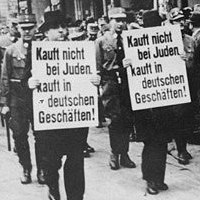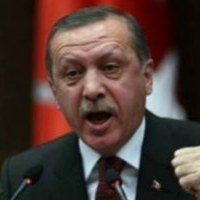![]()
Sun, Dec 19, 2010 | The Meir Amit Intelligence and Terrorism Information Center

Jailed Iranian journalist Abdolreza Tajik. (Source: http://www.flickr.com/photos/sabzphoto/4430649450/)
Iran Arrests Reformist Journalists
Seven reformist journalists were arrested in Iran over the past week. Earlier this week, internal security forces raided the residence of Reyhaneh Tabataba’i, a journalist working for the reformist daily Sharq, and arrested her.
Last week, security forces raided the Sharq headquarters and arrested editor-in-chief Ahmad Gholami; international news editor Farzaneh Rousta’i; political affairs editor Keyvan Mehregan; and Ali Khodabakhsh, one of the owners of the daily. Amir Hadi Anvari, the editor of the daily’s economy supplement, was arrested shortly afterwards (Jaras, December 12). The arrests took place the same day the newspaper published an article on Iran’s student movement that included interviews with government critics. The Committee to Protect Journalists says the arrests took place during two raids on Tuesday. In a Wednesday statement, the journalism rights group says multiple sources have indicated that police beat several journalists during the first raid (VOA, December 08, 2010).
Also arrested last week was Mehran Faraji, a journalist writing on social affairs, who previously worked for the reformist newspapers Hamshahri, E’temad-e Melli, and Kargozaran. Faraji was a member of E’temad-e Melli, the party of Mehdi Karoubi, one of the reformist opposition leaders (Jaras, December 12).
Also this week, a Tehran court sentenced prominent journalist Mashallah Shamsolvaezin to 16 months of imprisonment on charges of offending the president. Shamsolvaezin, spokesman of the Committee for the Defense of Freedom of the Press and vice president of the Association of Iranian Journalists, was accused, among other things, of calling President Ahmadinejad a “megalomaniac” in an interview given to the Al-Arabiyya network.
Tehran’s Prosecutor General Abbas Ja’fari Dowlatabadi said that the Sharq journalists had been arrested for security-related crimes. The daily Sharq resumed its activity in March 2010, having been shut down by the authorities in February 2004, September 2006, and August 2007.
Following the wave of arrests, the international organization Reporters Without Borders released a statement last week condemning the journalists’ arrests. The statement said that Iran was taking advantage of the resumption of the nuclear talks with the West and the silence of the international community to step up the oppression of its journalists and media. The organization also condemned last week’s re-arrest of journalist and human rights activist Emadeddin Baqi.
This past year, over one hundred journalists have been arrested and imprisoned and some 20 newspapers were shut down in Iran. There are currently about 35 journalists serving time in Iranian prisons. They are charged with such offenses as sedition, incitement, contacting hostile elements, violating public order, compromising national security, propaganda against the Islamic republic, giving false information, and offending the Supreme Leader or the president. Reporters Without Borders currently ranks Iran 175th globally in the freedom of press index, ahead of only three countries: Turkmenistan, North Korea, and Eritrea.
This week, Reporters Without Borders has awarded its 2010 Press Freedom Prize to the jailed Iranian journalist Abdolreza Tajik. The award was presented at ceremony hosted by journalist Elizabeth Tchoungui at the Foreign Press Reception Centre (CAPE) in Paris last night (Dec 09, 2010). Jailed for the third time on 12 June of this year, Tajik is still detained in Tehran’s Evin Prison. Tajik was chosen for his reporting and his commitment to the defence of press freedom in Iran. A member of the Human Rights Defenders Centre and a determined free speech activist, he worked as political editor on many of the newspapers that have been closed by the authorities, such as Fateh (closed by the authorities in 2000), Bahar (closed in 2001), Bonyan (closed in 2002), Hambastegi (closed in 2003) and Shargh (closed in 2008). He often writes about free speech violations and arbitrary arrests of journalists. Iranian Nobel Peace Prize laureate and human rights activist Shirin Ebadi, the head of the Tehran-based Human Rights Defenders Centre, received the award on his behalf. Thanking all those who defend free speech in Iran, Ebadi said: “I regret that Abdolreza is not here to receive this award in person. His only crime has been to write, to write the truth. For doing that, he is being held in solitary confinement in Evin prison, without his lawyer being able to see him or have access to his case file. Abdolreza is a symbol of resistance in Iran, and he is not the only one. I hope he will be here next year to meet you.” The Reporters Without Borders Prize has been awarded every year since 1992 to a journalist and a news media in different parts of the world that have made a significant contribution to the defence and promotion of press freedom. The prize winners are selected by an international jury of journalists and human rights activists. (Reporters Without Borders, December 10, 2010).



 RSS
RSS










#Iran Arrests #Reformist Journalists | #Human #Rights #Freedom http://j.mp/geB79U
#Iran Arrests #Reformist Journalists | #Human #Rights #Freedom http://j.mp/geB79U
RT @CrethiPlethi: #Iran Arrests #Reformist Journalists | #Human #Rights #Freedom http://j.mp/geB79U